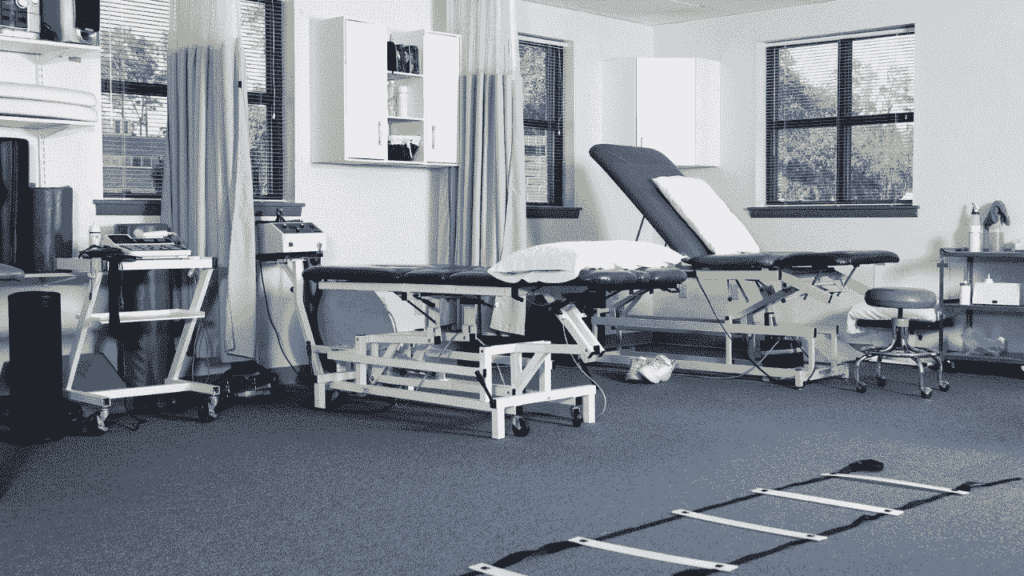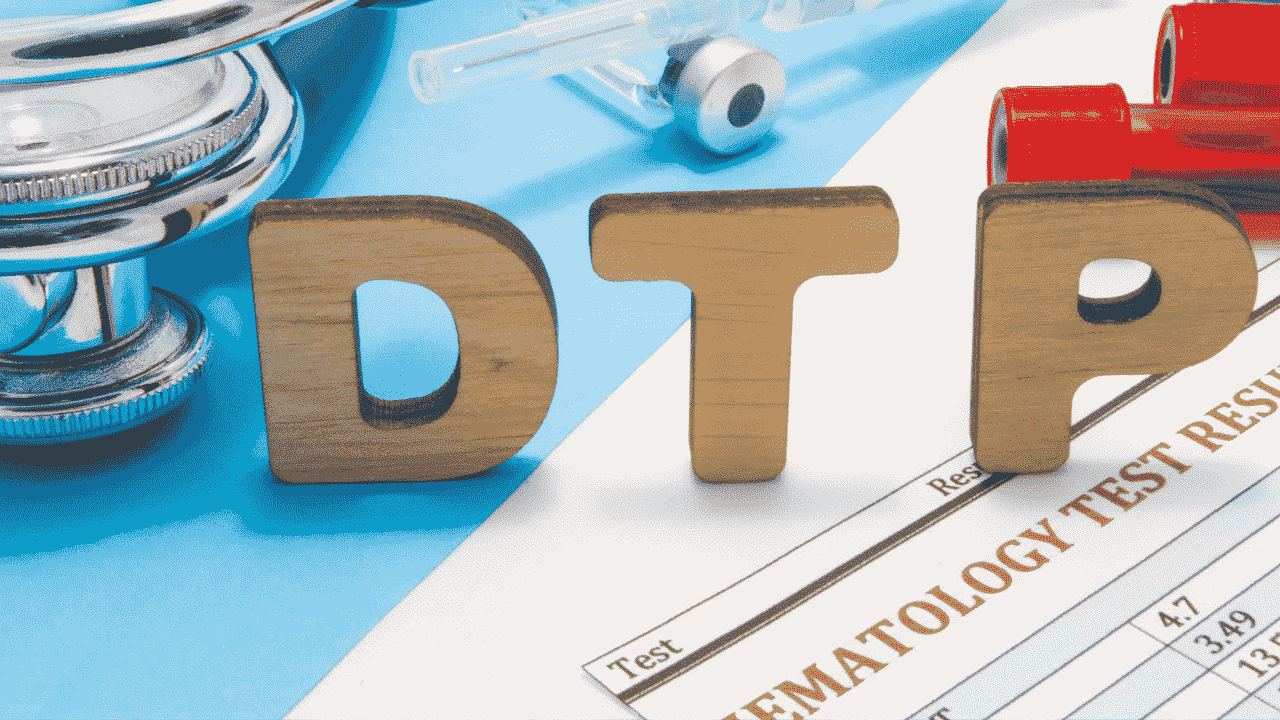1. Introduction to Rehabilitation Sciences in Pakistan
In the dynamic and ever-evolving landscape of Pakistan’s healthcare industry, the profession of Doctor of Physical Therapy has emerged as a beacon of hope, offering a plethora of opportunities to aspiring healthcare professionals. The rising demand for specialized healthcare services has amplified the importance of rehabilitation and movement science in patient care.
Table of Contents
In this comprehensive guide, we will delve into the multifaceted world of this burgeoning field in Pakistan, exploring its scope, career prospects, salary trends, educational requirements, and future outlook.
2. What is DPT? (DPT Stands For)
DPT, or Doctor of Physical Therapy, signifies a specialized healthcare professional equipped with the knowledge and skills to diagnose, treat, and prevent physical impairments and disabilities. They employ various techniques like exercise, manual therapy, and patient education to restore function, alleviate pain, and enhance the overall quality of life for their patients.
While rehabilitation specialists share certain commonalities with physiotherapists, they differ in the extent of their education and training. A Doctor of Physical Therapy program typically requires a 5-year commitment, culminating in a doctorate degree, while physiotherapists generally hold a bachelor’s or master’s degree. This distinction empowers DPTs with a broader scope of practice, enabling them to make independent clinical decisions and manage complex patient cases.
A common question is “Can physical therapists perform surgery?” The answer is no, they can’t. Their expertise lies in non-invasive interventions that promote healing, prevent further injury, and facilitate optimal physical function.
3. Scope of Rehabilitation Medicine in Pakistan
The scope of rehabilitation medicine in Pakistan is both expansive and promising, with diverse career opportunities across various healthcare settings. Hospitals, rehabilitation centers, private clinics, sports facilities, and even educational institutions are actively seeking qualified DPT graduates.
With the increasing prevalence of lifestyle-related diseases, musculoskeletal disorders, and an aging population, the demand for rehabilitation professionals is projected to surge in the coming years.
This makes the Doctor of Physical Therapy degree a highly sought-after profession with excellent job prospects and growth potential.
4. Salary Trends for Rehabilitation Professionals in Pakistan
The remuneration for individuals in the rehabilitation field in Pakistan can vary depending on factors such as experience, specialization, location, and the type of employer (private vs public). Fresh graduates can expect a starting salary ranging from Rs. 40,000 to Rs. 60,000 per month. With experience and expertise, the earning potential can significantly increase, reaching up to Rs. 150,000 or more per month for senior practitioners.
5. Rehabilitation Sciences as a Career for Females in Pakistan
The field of rehabilitation sciences offers unique advantages and a favorable scope for females in Pakistan. The flexibility of work hours, especially in private practice, aligns well with the cultural norms and family commitments of many women. Furthermore, there is a rising demand for female rehabilitation professionals, particularly in women’s healthcare settings where cultural sensitivities and patient preferences play a crucial role.
6. DPT Merit and Admission Requirements
Admission into Doctor of Physical Therapy programs in Pakistan is typically based on merit, considering the candidate’s academic performance in intermediate or equivalent examinations. The minimum aggregate requirement can vary across universities, but a strong academic record is crucial. While some universities may conduct their own entry tests, the MDCAT (Medical & Dental College Admission Test) is not mandatory for DPT admissions in most institutions.

The DPT program generally spans 5 years, comprising a comprehensive curriculum with a blend of theoretical coursework and hands-on clinical training. The fee structure can differ among universities, but it’s advisable to explore scholarship options and financial aid programs to manage educational expenses.
7. Subjects in DPT Course in Pakistan
The DPT course in Pakistan encompasses a diverse range of subjects, including:
- Anatomy
- Physiology
- Kinesiology
- Biomechanics
- Pathology
- Pharmacology
- Neuroscience
- Exercise Physiology
- Therapeutic Exercise
- Manual Therapy
- Electrotherapy
- Rehabilitation Techniques
- Patient Education
- Research Methodology
This holistic curriculum equips students with the theoretical foundations and practical skills necessary to excel in the field of rehabilitation.
8. International Scope for Pakistani DPT Graduates
A DPT degree from Pakistan holds international recognition, opening doors to lucrative career opportunities in foreign countries. Countries like the USA, Canada, Australia, the UK, and Gulf nations offer a high demand for skilled rehabilitation professionals. However, it’s important to note that additional certifications or exams might be required to practice in specific countries.
Physical Therapy in the Pakistan Army
The Pakistan Army provides a unique and rewarding career path for DPT graduates. Rehabilitation specialists play a crucial role in maintaining the physical fitness and well-being of soldiers, treating injuries, and facilitating rehabilitation. Working in the military offers distinct advantages like job security, comprehensive benefits, and the opportunity to serve the nation.
9. Can DPT Graduates Open Clinics in Pakistan?
Yes, DPT graduates in Pakistan are permitted to open their own private clinics, subject to fulfilling the legal and regulatory requirements set by the relevant authorities. Establishing a successful private practice demands not only clinical expertise but also business acumen and effective patient management skills.

10. Is DPT a Good Degree in Pakistan?
Considering the expanding scope, promising job prospects, competitive salary range, and the potential for personal and professional growth, a Doctor of Physical Therapy degree undoubtedly stands as a good degree in Pakistan. It’s a fulfilling career choice for individuals passionate about healthcare, human anatomy, and making a tangible difference in people’s lives.
11. Future of Rehabilitation Sciences in Pakistan
The future of rehabilitation sciences in Pakistan appears bright and optimistic. With advancements in medical technology, increasing awareness about the field, and a growing emphasis on preventive healthcare, the demand for skilled DPTs is expected to witness a steady rise. This translates to ample job opportunities, career progression, and the potential to contribute meaningfully to the healthcare landscape of Pakistan.
Conclusion
In conclusion, the Doctor of Physical Therapy (DPT) degree in Pakistan holds immense promise and opens doors to a rewarding and impactful career in the healthcare sector. With a vast scope encompassing diverse job opportunities, competitive salaries, and the chance to make a real difference in patients’ lives, obtaining a DPT is an excellent choice for aspiring healthcare professionals.
As the healthcare industry continues to evolve and expand, the role of rehabilitation specialists will become increasingly vital. By choosing DPT, you embark on a journey of lifelong learning, professional growth, and the satisfaction of helping others regain their mobility, independence, and overall well-being.
FAQs
-
What is the difference between a DPT and a physiotherapist in Pakistan?
While both DPTs (Doctors of Physical Therapy) and physiotherapists provide rehabilitation services, a DPT holds a doctorate degree, signifying a higher level of education and a broader scope of practice compared to physiotherapists who typically have a bachelor’s or master’s degree.
-
Is the MDCAT required for DPT admission in Pakistan?
In most universities in Pakistan, the MDCAT is not a mandatory requirement for DPT admissions. However, some institutions may have their own entrance exams or specific eligibility criteria.
-
What is the average salary for a DPT graduate in Pakistan?
The average salary for a fresh DPT graduate in Pakistan ranges between Rs. 40,000 to Rs. 60,000 per month. As physical therapists gain experience and specialize in certain areas, they can earn a lot more money.
-
Can female DPT graduates find suitable job opportunities in Pakistan?
Yes, the field of physical therapy offers a favorable scope for females in Pakistan. The flexibility of work hours and the growing demand for female therapists, especially in women’s health, create ample opportunities for women to build successful careers.
-
Is a DPT degree from Pakistan recognized internationally?
Yes, a DPT degree from a recognized Pakistani university holds international recognition, allowing graduates to pursue career opportunities abroad. However, additional certifications or exams might be needed to practice in specific countries.
-
What are the future prospects for DPT graduates in Pakistan?
The future of DPT in Pakistan is promising. With the increasing demand for rehabilitation services, advancements in medical technology, and a growing emphasis on preventive healthcare, the job market for DPT graduates is expected to expand steadily in the coming years.
-
Can DPT graduates open their own clinics in Pakistan?
Yes, DPT graduates are allowed to establish their private clinics in Pakistan, provided they comply with the legal and regulatory requirements.
-
What are some of the core subjects taught in a DPT program in Pakistan?
The DPT curriculum covers a wide range of subjects, including anatomy, physiology, kinesiology, biomechanics, pathology, pharmacology, neuroscience, exercise physiology, therapeutic exercise, manual therapy, electrotherapy, rehabilitation techniques, patient education, and research methodology.
-
Are there any opportunities for DPT graduates in the Pakistan Army?
Yes, the Pakistan Army offers career opportunities for DPT graduates in their medical corps, where they can contribute to the rehabilitation and fitness of soldiers.
-
Is DPT a good career choice for someone interested in healthcare?
Absolutely! DPT is a rewarding and fulfilling career path for individuals passionate about healthcare, human movement, and making a positive impact on people’s lives. With its expanding scope, competitive salaries, and the opportunity to contribute to the well-being of others, DPT is undoubtedly a good degree in Pakistan.
